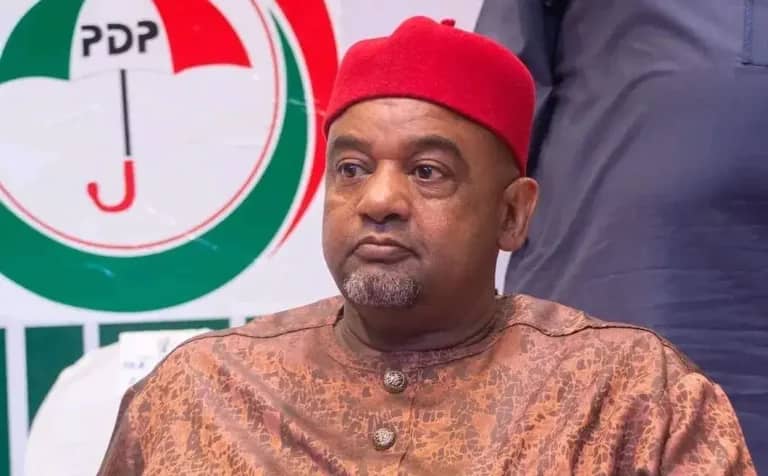The Petroleum and Natural Gas Senior Staff Association of Nigeria (PENGASSAN) has raised strong concerns over a recent Executive Order issued by President Bola Tinubu, stating that the directive could seriously undermine the Nigerian Oil and Gas Industry Content Development (NOGICD) Act, especially in offshore operations.
The labour union, which represents senior workers in the oil and gas sector, warned that the implementation of the Executive Order may hinder efforts to enforce local content policies in deep offshore oil projects. The statement was issued on Sunday, June 16, 2024, by PENGASSAN President Festus Osifo during a press briefing in Abuja.
The Executive Order, signed by President Tinubu on March 6, 2024, seeks to streamline the contracting process for oil and gas projects in Nigeria. It aims to reduce the timeline for approving and executing projects and to enhance investment by cutting through bureaucratic red tape. However, PENGASSAN argues that while the policy’s objective of boosting foreign investment is understandable, it could also open the door for multinational companies to bypass Nigerian content requirements, particularly in offshore operations.
Osifo expressed alarm that the order may be misused by international oil companies (IOCs) to import labor, equipment, and services that should otherwise be sourced locally. He stated that such a development would threaten existing job opportunities for Nigerians and weaken the growth of indigenous capacity in the sector.
According to Osifo, “The Executive Order may look good on paper, but the potential for abuse is high, especially when applied to offshore projects where enforcement mechanisms are weaker.” He added that the union has observed previous instances where IOCs have attempted to circumvent local content regulations, and this order might make it easier for them to do so under the guise of expediting project timelines.
PENGASSAN has urged the federal government to clarify how the Executive Order will align with the Nigerian Content Development Act, which mandates that a significant portion of oil and gas industry spending be retained within the Nigerian economy. The union insists that any new directive must not override existing laws that were specifically enacted to develop local human and material capacity in the sector.
The association also called on the Nigerian Content Development and Monitoring Board (NCDMB) to remain vigilant and ensure that the new directive does not dilute its authority or compromise its ability to monitor compliance with the NOGICD Act. Osifo stressed that a balance must be struck between promoting investment and safeguarding national interests.
Legal experts have echoed similar concerns, warning that the Executive Order might conflict with the NOGICD Act if not carefully interpreted and implemented. They have advised that stakeholders be consulted in order to harmonize the objectives of the order with the goals of the local content law.
Meanwhile, industry watchers believe that the Executive Order was designed to improve Nigeria’s competitiveness in attracting energy investments, especially in a global environment where funding for fossil fuel projects is becoming more selective. However, they agree with PENGASSAN that any reform must not come at the expense of local participation and economic development.
The union also reminded the government that Nigeria’s local content policy has played a crucial role in creating jobs, building infrastructure, and promoting indigenous firms over the past decade. PENGASSAN cautioned that reversing these gains, even unintentionally, could set back the nation’s progress in oil and gas development.
The Executive Order is part of President Tinubu’s broader economic reform agenda aimed at revitalizing the energy sector and attracting much-needed investment. Still, stakeholders insist that transparency and adequate consultation are key to ensuring that such reforms do not erode foundational laws designed to protect Nigerian interests.
As the government moves forward with implementing the Executive Order, PENGASSAN stated it would continue to engage with policymakers and industry regulators to ensure that local content remains a priority in all oil and gas operations, especially those carried out offshore.
No official response has yet been issued by the Presidency regarding PENGASSAN’s concerns. However, analysts expect that the government may soon release further guidelines or amendments to address the fears raised by the union and other stakeholders in the sector.





